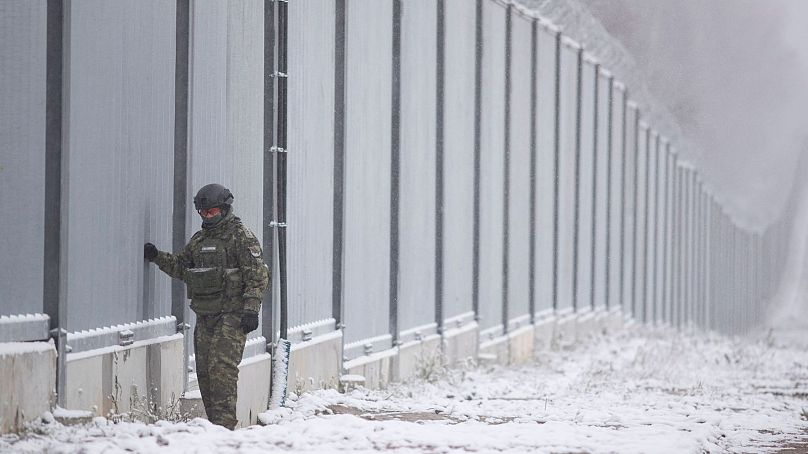Médecins Sans Frontières, which has been treating migrants crossing into Poland since late 2022, said that many suffer hypothermia, dehydration, exhaustion and physical violence while making the perilous journey.
Since the beginning of the Russian invasion of Ukraine in late February 2022, hundreds of people have crossed the border between Belarus and Poland trying to reach safety in the European Union. Many have done so on foot - despite the difficulties presented by the journey.
Under a 2021 law that amended Poland’s domestic legislation, those who cross the border from Belarus illegally can be pushed back, a practice that’s contrary to EU and international law. This in turn has forced refugees attempting the journey to hide from border guards and military and often put themselves in risky situations by spending long periods of time in forests like Białowieża and swamps.
According to Médecins Sans Frontières, Doctors without Borders or MSF, many of those who crossed the border on foot arrived in dire conditions on EU soil.
Trapped in ‘no man's land’
The NGO has been providing medical assistance to refugees arriving into Poland’s Podlasie region since November 2022, and since then has helped 220 people. One in 10 of these refugees crossing into Poland from Belarus “needed life-saving referral by ambulance,” according to the NGO.
Hypothermia and trench foot - damage to the feet caused by keeping them damp for long periods of time - are also common conditions among refugees braving the difficult trip which MSF has trained local civil society groups to recognise and treat.
“Many of the patients have injuries caused by a long, 5-5m-high razor wire-lined border wall,” said Andreas Spaett, MSF Head of Mission in Poland.
“These people have experienced violence during their journey, and when they reach the border, they are faced with a heavily militarised environment,” he added. “They cannot go back, and they risk being trapped in ‘no-man’s land’ between the Polish wall and the Belarusian fence, and so they try and go forward.”
According to Spaett, MSF has treated people with sprains, fractures, and dog bites, as well as men, women and children “who are exhausted and dehydrated or have serious physical injuries.” Some refugees, according to MSF, have drunk swamp water and become violently ill.
Earlier in the year, the NGO met a young man who had spent more than a week in the forest without food or water, who was “in such pain that he was unable to get off the ground.” The man refused to go to the hospital because he was afraid he would be sent back to Belarus.
Winter is an even tougher time for refugees. Spaett said he expects cases of frostbite and hypothermia to rise in the coming weeks, as more refugees are expected to cross the border in the coming weeks.
A cross-border problem
Poland and neighbouring Lithuania are grappling with a migrant crisis which they believe is closely linked to the Belarusian government of Aljaksandr Lukašėnka. For years, Belarus’ neighbours have accused Minsk of weaponising migrants in retaliation against sanctions imposed by the bloc in 2020, pushing people at the border to create chaos within the European Union.
Thousands of migrants have tried to cross the border with Poland and Lithuania since 2021, with many being injured or killed during the perilous journey. In December last year, Euronews reported that at least three migrants had their legs amputated in previous months trying to cross the border between Lithuania and Belarus.
In November, a Syrian asylum seeker was shot near the border between Belarus and Poland after a Polish soldier allegedly “tripped.” The man was taken to the hospital and was in stable condition, though at risk of paralysis.
Both Poland and Lithuania have justified migrant pushbacks - which are illegal under EU law - as a legitimate and necessary response to the ongoing emergency, blaming Belarus for forcing migrants to face such risks.












